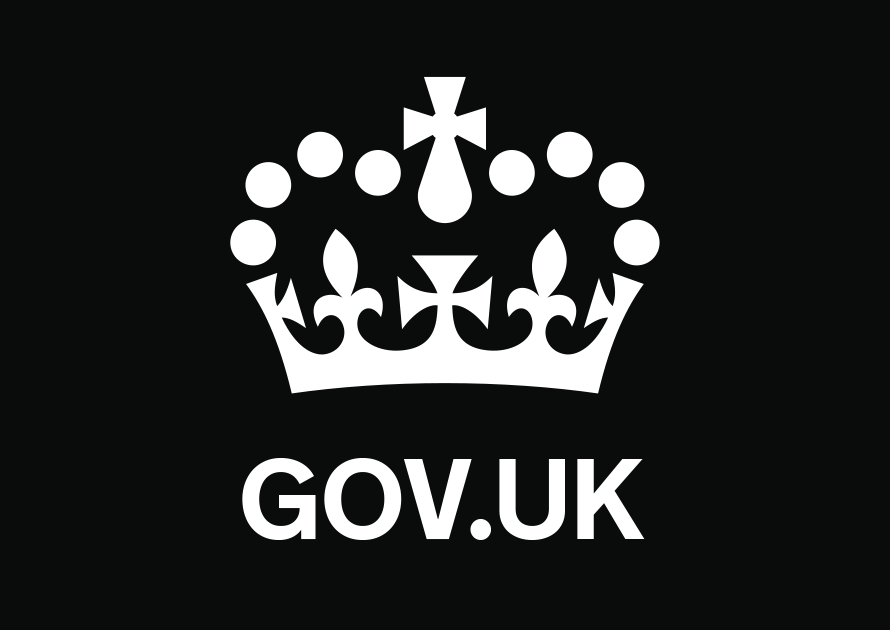The following guidance includes calculations.
You do not pay Stamp Duty Land Tax if you buy a property in:
You may need to pay Stamp Duty Land Tax when all or part of an interest in land or property is transferred to you and you give anything of monetary value in exchange.
Anything of monetary value that you give in exchange is called the ‘chargeable consideration’.
The rules you use to work out how much Stamp Duty Land Tax you pay depend on the circumstances of the property transfer.
If you marry, enter into a civil partnership or set up home together
You might pay Stamp Duty Land Tax when you transfer a share in a property to a spouse or partner when you do one of the following:
- marry
- enter into a civil partnership
- move in together
You pay Stamp Duty Land Tax if the chargeable consideration given in exchange for the share transfer is more than the current Stamp Duty Land Tax threshold for the property type.
An example of when you pay Stamp Duty Land Tax when no money changes hands
The owner of a property valued at £500,000 with an outstanding mortgage of £400,000 transfers half the property to their partner when they marry in March 2020. Their partner takes on 50% of the mortgage (£200,000).
HMRC charge Stamp Duty Land Tax on the amount paid for a property or the amount of ‘chargeable consideration’ given.
By taking liability for the mortgage, the owner’s partner has given ‘chargeable consideration’ of £200,000 for their share of the property which is £1,500 Stamp Duty Land Tax (0% of £125,000 + 2% of £75,000).
They must pay Stamp Duty Land Tax on that amount and tell HMRC about the transfer by filling in a Stamp Duty Land Tax return.
The equity is not included in the calculation as you only pay Stamp Duty Land Tax on the chargeable consideration given.
An example of when you do not pay Stamp Duty Land Tax
A house has a value of £180,000. The owner of the property has equity of £90,000 and an outstanding mortgage of £90,000. The owner transfers a half share of the property to their partner.
Their partner:
- pays cash for half of the equity — £45,000
- takes responsibility for 50% of the outstanding mortgage — £45,000
So the chargeable consideration for Stamp Duty Land Tax is £90,000, made up of the:
- cash payment
- 50% share of the outstanding mortgage
£90,000 is below the current Stamp Duty Land Tax threshold so there’s no tax to pay. You must still tell HMRC about the transaction on an Stamp Duty Land Tax return.
If the transfer is a gift
If the transfer is a gift and there’s no chargeable consideration, Stamp Duty Land Tax does not normally apply. Read ‘if you’re given property as a gift’ section for more information about when Stamp Duty Land Tax is payable.
If you transfer property because of divorce, separation or the end of a civil partnership
You do not pay Stamp Duty Land Tax if you transfer an interest in land or property to your partner as part of an agreement or court order because you’re either:
- divorcing
- dissolving a civil partnership
This also applies if the partners either:
- annul their marriage
- legally separate
In these cases there’s no need to tell HMRC about the transfer, even if the value is more than the Stamp Duty Land Tax threshold.
If you transfer or divide up jointly-owned property or land: unmarried couples and other joint owners
If joint owners are unmarried and not in a civil partnership when they transfer an interest in land or property from one joint owner to another then you may have to pay Stamp Duty Land Tax.
You do not pay Stamp Duty Land Tax if 2 or more people jointly own property (as joint tenants or tenants in common) and you divide it physically and equally and own each part separately.
If you or another person takes a bigger share, or all of the other’s share, and pay cash or some other chargeable consideration in exchange, you must tell HMRC by filling in a Stamp Duty Land Tax return.
If the amount you pay is more than the current threshold, you’ll pay Stamp Duty Land Tax on it. Read ‘an example of when Stamp Duty Land Tax may be payable’ for more information.
If someone takes on a larger share of jointly owned property
When a property is jointly owned, if you split the property equally Stamp Duty Land Tax is not payable.
If one person takes on a larger share, they may need to pay Stamp Duty Land Tax.
An example of when Stamp Duty Land Tax may be payable
Two people own a farm jointly in equal shares. It’s valued at £2 million. They split the ownership of the farm geographically and each takes 50% of the land.
If the value of each half of the land is the same, then no Stamp Duty Land Tax is due.
But in this example the land taken by person 1 includes the farmhouse and farm buildings. This owner’s land is worth £500,000 more than the land that the other owner, person 2, takes. The shares are:
-
person 1 — £1,250,000
-
person 2 — £750,000
Person 1 compensates person 2 and pays them £250,000.
Stamp Duty Land Tax is payable on this £250,000 because it’s more than the current threshold.
If you take a larger share as a gift
If you take a bigger share but do not pay anything in return, there’s no ‘chargeable consideration’ given including taking on liability for a mortgage. You will not pay Stamp Duty Land Tax, even if the value of the extra part of the share is more than the Stamp Duty Land Tax threshold. You do not need to tell HMRC about the transaction.
If you transfer the outstanding mortgage
Joint owners (this may include unmarried couples who are splitting up) may agree that just one of them will take over ownership of a property they bought together, including any outstanding mortgage.
In this case the person taking ownership will pay Stamp Duty Land Tax on the total chargeable consideration of either or both of the following, if it exceeds the Stamp Duty Land Tax threshold:
- any cash payment that one of the couple makes to the other for their share
- the proportion of the outstanding mortgage that belongs to the share of the property being transferred
An example of when you pay Stamp Duty Land Tax when you transfer ownership
Two people own a house equally together and:
- it’s valued at £400,000
- they’ve equity in the property of £300,000
- they’ve an outstanding mortgage of £100,000
In August 2020, they transfer ownership so that one of them will have sole ownership of the property. The new sole owner:
- pays cash for half of the equity — £150,000
- becomes responsible for the other person’s half of the outstanding mortgage — £50,000
The chargeable consideration for Stamp Duty Land Tax is £200,000, made up of the:
- cash payment
- 50% share of the outstanding mortgage
As the transfer occurred within the temporary reduced rate period, no Stamp Duty Land Tax is due as the £200,000 chargeable consideration given is below the temporary rate threshold.
The new sole owner must still tell HMRC by filling in a Stamp Duty Land Tax return.
If the transfer occurred before 8 July 2020, or after 30 September 2021, Stamp Duty Land Tax would be due as the chargeable consideration would be above the standard rate threshold.
The new sole owner pays £1,500 Stamp Duty Land Tax (0% of £125,000 + 2% of £75,000) and must tell HMRC by filling in a Stamp Duty Land Tax return.
If you get land or property as a gift or from a will
If you’re left land or property in a will
If you get land or property under the terms of a will, there’s no need to tell HMRC and you will not pay Stamp Duty Land Tax. This applies even if you take on an outstanding mortgage on the property on the date the person died. This is on condition that no other chargeable consideration is given.
If you’re given property as a gift
If you get property as a gift you’ll not pay Stamp Duty Land Tax as long as there’s no outstanding mortgage on it.
You’ll pay Stamp Duty Land Tax if you take over some or all of an existing mortgage and the value of the mortgage is over the Stamp Duty Land Tax threshold.
An example of when Stamp Duty Land Tax is payable if you’re given property as a gift
The owner of a property decides to transfer half of their share to their spouse. The owner does not take a cash payment for this share, but there’s an outstanding mortgage on the property.
Their spouse takes on the responsibility of 50% of the outstanding mortgage. If the amount outstanding that their spouse takes on is more than the current threshold, Stamp Duty Land Tax is payable.
HMRC must be told about the transaction by filling in a Stamp Duty Land Tax return.
If you transfer land or property to or from a company
When property is transferred to a company, Stamp Duty Land Tax may be payable on its market value, not the chargeable consideration given. For example, if a property has a market value of £200,000 but the company only pays a chargeable consideration of £100,000, Stamp Duty Land Tax will still be payable on £200,000.
This applies in either of the following situations, the:
- person who transfers the property is ‘connected’ with the company — the definition of a connected person covers relatives and people who’ve some involvement with the company
- company pays for the property with shares in the company (partly or wholly) to the person making the transfer, where that person is connected to the company (but not necessarily the acquiring company)
You may pay a higher rate of Stamp Duty Land Tax on purchases of additional residential properties.



